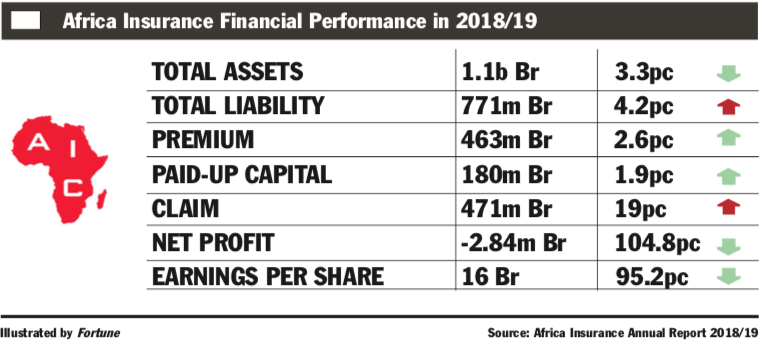
Fortune News | Jan 11,2020
The Addis Abeba City Administration has mandated all businesses to contribute to the Community-Based Health Insurance (CBHI) scheme as a precondition for accessing essential government services, including trade license renewals and tax clearance certificates.
The circular, signed by Biniyam Mikru, head of the Addis Abeba Revenue Bureau, took effect on July 17, 2025, with immediate enforcement, sparking a flurry of confusion, resistance, and criticism over a lack of stakeholder engagement.
City officials argue the measure is not a new levy but rather an extension of an existing national healthcare framework.
“This isn’t an additional charge,” said Yohannes Chala (MD), head of the city's Health Bureau. “We’re simply bringing the business community into a national health framework that already exists.”
We’re being squeezed from every side.” Semira Mudesir A Class
The 2017 CBHI Regulation serves as the legal foundation for the measure, categorising taxpayers into three tiers with annual contributions: 10,500 Br for Class A, 6,900 Br for Class B, and 2,000 Br for Class C.
The administration insists that the contributions will enhance healthcare access, particularly for uninsured urban residents, and points to last year’s one billion Birr public spending on health insurance subsidies.
“Healthcare costs are rising," said Abdulkadir Redwan, head of the city’s Finance Bureau. "Everyone must play a role. Businesses that benefit from a healthy workforce and community should be part of the solution.”
However, the rationale has done little to assuage growing frustration within the private sector. The Addis Abeba Chamber of Commerce & Sectoral Associations (AACCSA), representing tens of thousands of enterprises, has condemned the rollout as abrupt and exclusionary.
“We're blindsided,” said Zahara Mohamed, president of the Chamber. “No consultation, no preparation, just a bill slapped on businesses already struggling to stay afloat.”
The Addis Abeba Health Bureau reports that 2.5 million city residents are already enrolled in CBHI, which provides subsidised treatment at public health facilities. Officials argue that involving the business community is the next logical step in expanding coverage. Still, critics insist that without clear communication, transparency in how fees are calculated, and adequate grace periods for payment, the policy may inadvertently undercut public trust in the insurance model it seeks to strengthen.
Addis Abeba hosts approximately 28,348 microenterprises, which generate livelihoods for over 1.3 million people. One of these business owners is Semira Mudesir, a Class C taxpayer operating a small retail shop near 22 Mazoria. According to her, the policy compounds financial pressures. Her tax obligations have already ballooned from 15,000 Br last year to 35,000 Br this year, and the CBHI fee feels like the last straw.
“This is unfair and unsustainable. I don't know what to do. I'm waiting to pay," she said, lamenting that small businesses like hers are struggling under rising costs and economic uncertainty. “We’re being squeezed from every side.”
Critics also blame flaws in the scheme’s design. Former Ethiopian Insurance Corporation (EIC) executive, Mekonnen Gebreweld, dismissed the directive as coercive and counterproductive.
“The tiered contributions are inequitable, considering all enrollees get the same healthcare coverage,” he told Fortune. “You can’t build a sustainable insurance model through forced compliance.”
Research appears to back the scepticism. A 2023 study in Annals of Global Health revealed that only 24pc of urban Ethiopians surveyed supported mandatory payments into a proposed Social Health Insurance scheme, with an average willingness to pay 1.6pc of income, far below government expectations. Particularly among higher earners, mandatory contributions were perceived as inequitable and burdensome. Respondents in the two highest income quintiles are 10 to 13 percentage points more likely to oppose the scheme, viewing the premium as unfair.
Negotiations are ongoing. Business associations are lobbying for phased implementation and extended payment deadlines. As the dust settles, the standoff has revealed a broader tension between fiscal necessity and governance legitimacy in a city facing inflation, economic slowdown, and increasing demands for social services.
"This undermines the whole purpose of insurance," said Mekonnen. "Businesses deserve to get clear information on how the system works, the benefits it offers, and its financial impact."
The domestic insurance sector, particularly the life insurance segment, remains severely underdeveloped. Insurance penetration (premium as a percentage of GDP) remains below one percent, and industry analysts attribute the lack of awareness, limited distribution, few products, and underinvestment in talent to low penetration.
"Once people see the value of insurance, many will join willingly," said Mekonnen. "Forcing it only breeds resentment
PUBLISHED ON
Jul 26,2025 [ VOL
26 , NO
1317]

Dec 22 , 2024 . By TIZITA SHEWAFERAW
Charged with transforming colossal state-owned enterprises into modern and competitiv...

Aug 18 , 2024 . By AKSAH ITALO
Although predictable Yonas Zerihun's job in the ride-hailing service is not immune to...

Jul 28 , 2024 . By TIZITA SHEWAFERAW
Unhabitual, perhaps too many, Samuel Gebreyohannes, 38, used to occasionally enjoy a couple of beers at breakfast. However, he recently swit...

Jul 13 , 2024 . By AKSAH ITALO
Investors who rely on tractors, trucks, and field vehicles for commuting, transporting commodities, and f...

Oct 18 , 2025
The political establishment, notably the ruling party and its top brass, has become p...

Oct 11 , 2025
Ladislas Farago, a roving Associated Press (AP) correspondent, arrived in Ethiopia in...

Oct 4 , 2025
Eyob Tekalegn (PhD) had been in the Governor's chair for only weeks when, on Septembe...

Sep 27 , 2025
Four years into an experiment with “shock therapy” in education, the national moo...